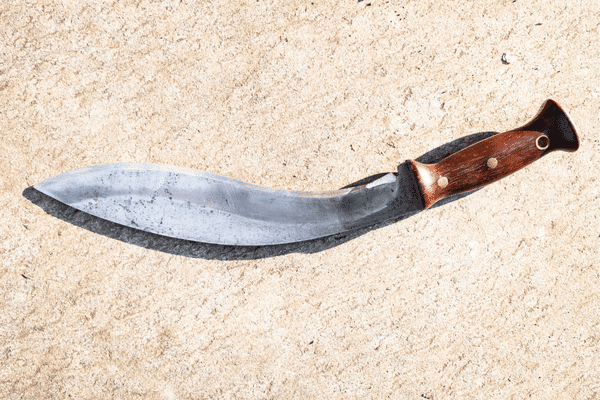Ready to buy a sword? This comprehensive guide offers crucial sword-buying tips to help you make an informed and satisfying choice. Whether you're a collector, enthusiast, or martial artist, these tips will steer you toward the perfect blade.
Introduction:
The allure of swords spans centuries, captivating enthusiasts with their historical significance, craftsmanship, and artistic appeal. But entering the realm of sword buying can be daunting without proper guidance. This article presents essential tips to empower you with the knowledge needed for a successful sword purchase.1. Define Your Purpose:
Begin by understanding your motivation for buying a Sword. Are you a collector seeking rare pieces, a martial artist needing a training weapon, or someone fascinated by history? Defining your purpose will guide your choices.2. Educate Yourself:
Research various types of swords, their historical contexts, and specific features. Understanding terminology like tang, pommel, and crossguard will enable better communication with sellers and make informed decisions.3. Set a Budget:
Establish a realistic budget range before you start shopping. High-quality swords can range from affordable to exclusive. Having a clear budget prevents overspending and helps you focus on options within your means.4. Choose the Right Type:
Select a sword type that aligns with your purpose and interests. Whether it's a medieval Longsword, a Japanese Katana sword, or a European Rapier, Scimitar Sword, each type offers unique characteristics that cater to different preferences.
5. Prioritize Quality Craftsmanship:
Examine the sword's craftsmanship closely. A well-made sword demonstrates attention to detail, balanced proportions, and precision in its design and construction.6. Material Matters:
Consider the materials used in the blade, hilt, and handle. High-quality swords often feature stainless or carbon steel blades for durability and sharpness. Authenticity matters, so research historical materials if applicable.7. Balance and Handling:
Whenever possible, handle the sword before purchase. Assess its balance, weight distribution, and how it feels in your grip. A properly balanced sword contributes to its usability and enjoyment.8. Research Reputable Sellers:
Buy from reputable dealers or sellers specializing in swords. Look for positive reviews, authenticity guarantees, and transparent business practices. Avoid sources that lack verifiable credibility. Batttlingblades is a reputable seller you can buy any kind of sword at an affordable price and with the best quality material.9. Authenticity and Documentation:
For historical swords or replicas, insist on proper documentation and certificates of authenticity. These documents provide valuable information about the sword's origin, history, and value.
10. Understand Seller Policies:
Familiarize yourself with the seller's return, exchange, and warranty policies. Being aware of these terms ensures that you have recourse if the sword doesn't meet your expectations or arrives damaged.11. Avoid Impulse Buying:
Take your time during the decision-making process. Avoid rushing into a purchase without adequate research and consideration. Remember, a good sword is an investment that deserves thoughtful attention.12. Trust Your Instincts:
Ultimately, trust your instincts and gut feeling about a sword. If something feels off or too good to be true, it's wise to pause and reassess before proceeding.Conclusion:
Sword buying is an art that requires patience, education, and careful consideration. Armed with these essential sword-buying tips, you're prepared to navigate the market confidently and select a sword that resonates with your purpose and preferences. Remember, each Sword carries its own story, craftsmanship, and historical value, making your purchase a journey into the rich tapestry of history and culture.
.png)
.png)
.png)



Comments
Post a Comment